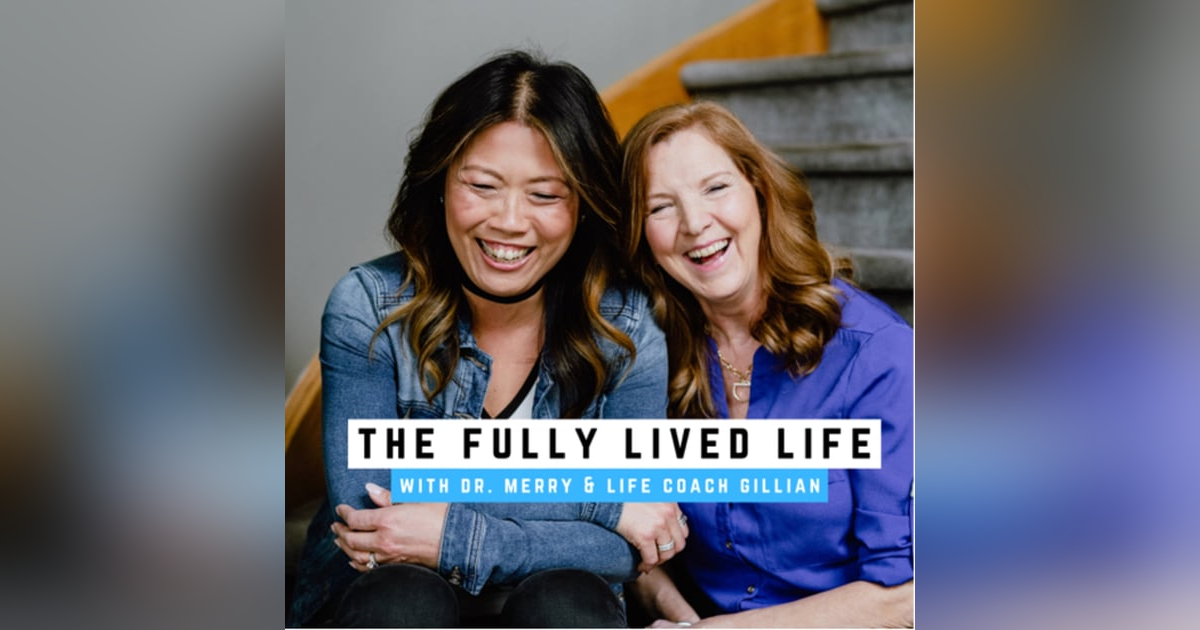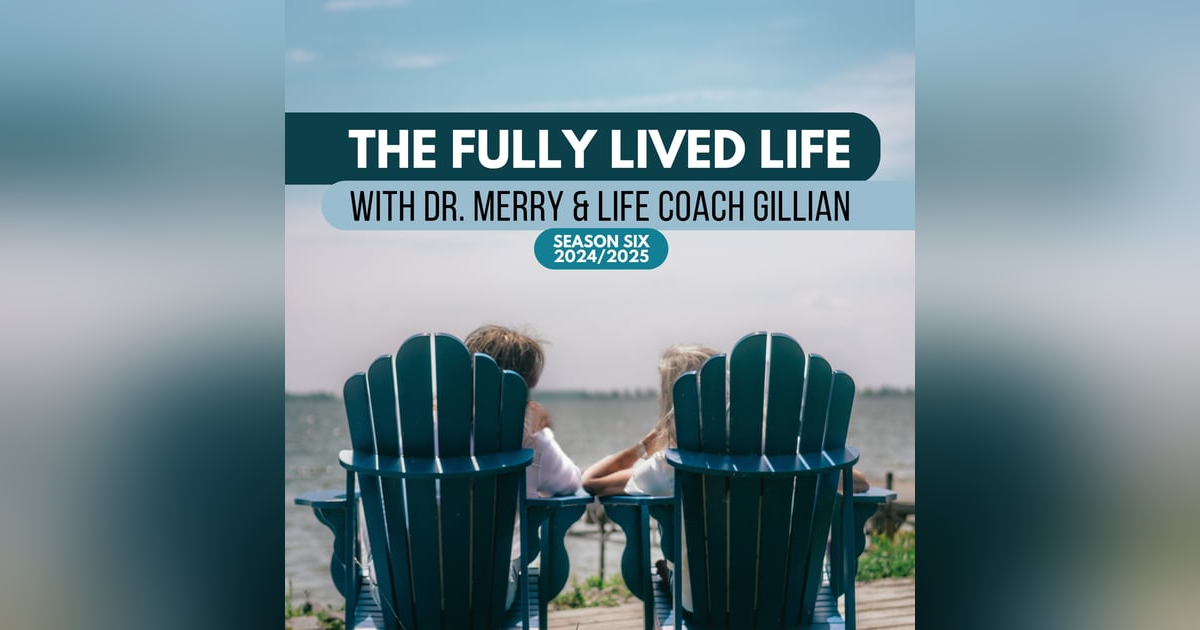053 - Forgiveness - The Gift you Give to Yourself!

Welcome to The Fully Lived Life podcast! A podcast for those who are longing to pursue the full life and want to break free from anything that holds them back. Listen in as two friends - a psychologist, Dr. Merry, and a life coach, Gillian - talk about life, love, and purpose - with wisdom, humour, and transparency - through the lens of science, psychology, and life experiences.
What:
Today we delve into the topic of forgiveness from a scientific and faith perspective.
So What:
Forgiveness differs from reconciliation or justice. Forgiveness benefits the individual by:
● greater feelings of happiness, hopefulness, and optimism.
● can protect against anxiety and depression and post-traumatic stress disorder.
● reducing unhealthy anger
● repairing potentially valuable relationships
● may lead to intergenerational and even societal improvement
Now What:
1. Acknowledge the pain: Acknowledge that you’ve been hurt at the hands of others. This includes seeing the negative behaviour that your pain hides in - judgement, criticism, withdrawal, hatred, vengeance - not in self-judgement but so you can understand the underlying pain that fuels your negative behaviours
2. Validate the pain - give yourself compassion to validate your hurt and anger, even if the offender minimizes your pain. We know from healthy emotional processing that we have to enter the tunnel of our emotions and come out of the other side. This may include inviting someone else into your story, who can help with empathy. These first two steps may take some time so give yourself grace as you do this.
3. Forgive the pain - this will be a rational decision you make, which you may have to make repeatedly when the offense comes to mind (or if the offender continues to repeat the hurtful behavior). Recognize how unforgiveness has kept you captive and this is about what’s healthy and good for yourself. Be specific about what you’re forgiving.
4. Release the pain - focus on how you’ve grown from the experience. And begin to think about whether the act was intentional to harm you or comes out of the offender’s own pain, to cultivate compassion for them. If you’re a person of faith, choose to give over your pain to God and trust that he’s got this. And ask God to help you see that offender with his eyes.
Links:
Dr. Merry’s book: https://amzn.to/2rCrJyI
Dr. Merry’s videos: https://bit.ly/377eFR0
Dr. Merry’s website: https://drmerry.com
Dr. Lin & Associates: http://drlinandassociates.com
Gillian’s Website: https://gillianmcshane.com








